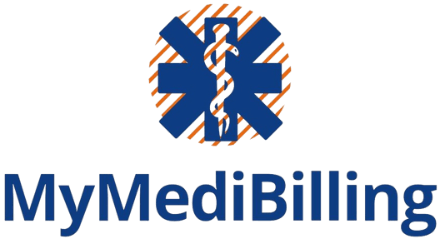Introduction
Credentialing services provide healthcare organizations with a swift and efficient method for verifying the qualifications and credentials of their providers. By delegating this task to a specialized credentialing service, healthcare organizations can conserve time and resources that would otherwise be expended on manual verification of each provider’s credentials. This expedited process enables the rapid onboarding of new providers, ultimately leading to enhanced patient access to care.
Moreover, the utilization of credentialing services can alleviate the administrative burden on healthcare organizations, allowing them to concentrate on delivering high-quality care to their patients. Furthermore, employ advanced technology and databases to facilitate the verification process. This technology enables the rapid and accurate verification of a provider’s education, training, licensure, and work history.
By harnessing these technological advancements, healthcare organizations can ensure that their providers are properly credentialed and qualified to deliver high-quality care to their patients. Overall, the streamlined and efficient process offered by credentialing services can significantly benefit healthcare organizations by saving time, reducing administrative burden, and improving patient access to care.
Key Takeaways
- Credentialing services offer a streamlined and efficient process for healthcare organizations, saving time and resources.
- Using credentialing services, which ensure that providers meet necessary standards, can improve patient safety and quality of care.
- Cost savings and revenue maximization are achieved through efficient credentialing, reducing administrative burden, and increasing provider productivity.
- Compliance with regulatory requirements is essential for healthcare organizations, and credentialing services help ensure adherence to industry standards.
- Access to a network of credentialed providers and enhanced provider and patient satisfaction are additional benefits of credentialing services.
Improved Patient Safety and Quality of Care
Credentialing services are crucial in enhancing patient safety and quality of care.
Ensuring Qualified Providers
By thoroughly vetting and verifying the credentials of healthcare providers, credentialing services help ensure that only qualified and competent providers are delivering care to patients. This rigorous credentialing process helps to mitigate the risk of medical errors and malpractice, ultimately leading to improved patient safety and quality of care.
Maintaining High Standards of Care
In addition, also helps healthcare organizations maintain high standards of care by ensuring that their providers are up-to-date with the latest medical knowledge and best practices. This ongoing monitoring and verification of provider credentials help to uphold the reputation and integrity of the healthcare organization, ultimately leading to better patient outcomes.
Improved Patient Outcomes
Overall, the use of credentialing services can significantly improve patient safety and the overall quality of care provided by healthcare organizations.
Cost Savings and Revenue Maximization
Another significant benefit of using credentialing services is the potential for cost savings and revenue maximization for healthcare organizations. By outsourcing the credentialing process, healthcare organizations can save on the costs associated with hiring and training in-house credentialing staff. Additionally, the streamlined and efficient process offered by credentialing services can help reduce the administrative costs associated with manual credential verification.
Furthermore, by ensuring that all providers are properly credentialed and qualified, healthcare organizations can minimize the risk of costly malpractice claims and legal disputes. This can ultimately lead to significant cost savings for healthcare organizations. Additionally, the improved patient safety and quality of care resulting from credentialing services can lead to higher patient satisfaction and retention, ultimately maximizing revenue for the organization.
Overall, the use of credentialing services can lead to significant cost savings and revenue maximization for healthcare organizations.
Compliance with Regulatory Requirements
| Benefits | Description |
|---|---|
| 1. Time-saving | Streamlines the credentialing process, saving time for healthcare providers. |
| 2. Accuracy | Ensures accurate and up-to-date provider information, reducing errors. |
| 3. Compliance | Helps healthcare organizations stay compliant with industry regulations and standards. |
| 4. Cost-effective | Reduces administrative costs associated with credentialing and re-credentialing. |
| 5. Improved patient care | Enables faster access to qualified providers, leading to improved patient care. |
Credentialing services also help healthcare organizations ensure compliance with regulatory requirements and accreditation standards. These services are well-versed in the various regulatory requirements and accreditation standards that healthcare organizations must adhere to, such as those set forth by The Joint Commission or the National Committee for Quality Assurance (NCQA). By outsourcing the credentialing process to a specialized service, healthcare organizations can ensure that they are meeting all requirements and standards.
Additionally, credentialing services can help healthcare organizations stay up-to-date with any changes or updates to regulatory requirements and accreditation standards. This ongoing monitoring and verification of provider credentials helps ensure that healthcare organizations remain in compliance with all relevant regulations and standards. Overall, the use of can help healthcare organizations avoid costly penalties and maintain their accreditation status.
Enhanced Provider and Patient Satisfaction
Finally, using credentialing services can lead to enhanced provider and patient satisfaction. For providers, the streamlined and efficient credentialing process offered by these services can lead to quicker onboarding and less administrative burden, ultimately leading to higher job satisfaction. Additionally, by ensuring that all providers are properly credentialed and qualified, helps uphold the reputation and integrity of the organization, leading to greater provider satisfaction.
For patients, the improved patient safety and quality of care resulting from can lead to higher satisfaction and better health outcomes. Patients can have peace of mind knowing that they are receiving care from qualified and competent providers who have been thoroughly vetted. Overall, the use of credentialing services can lead to enhanced satisfaction for both providers and patients.
Conclusion
There are numerous benefits to using credentialing services in today’s healthcare landscape. From streamlining the credentialing process to improving patient safety and quality of care, these services offer a wide range of advantages for healthcare organizations. By leveraging the expertise and technology offered, healthcare organizations can save time and resources, ensure compliance with regulatory requirements, and enhance provider and patient satisfaction.
Ultimately, the use leads to significant improvements in the overall efficiency and quality of care provided by healthcare organizations.


